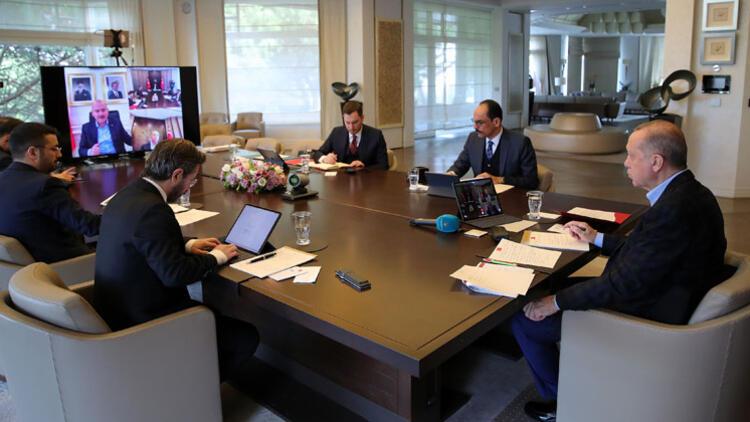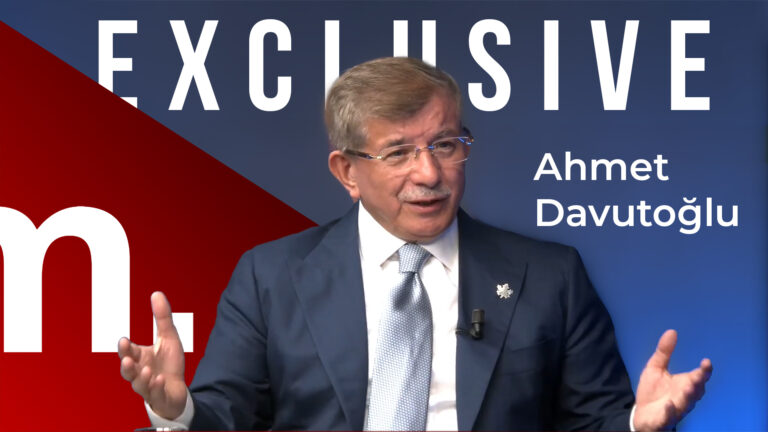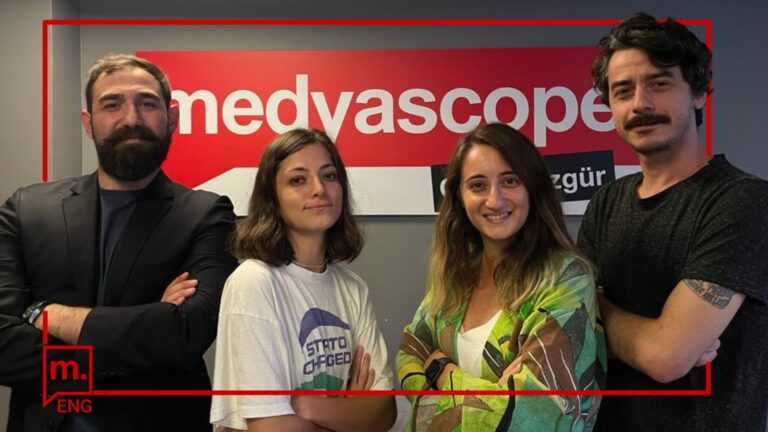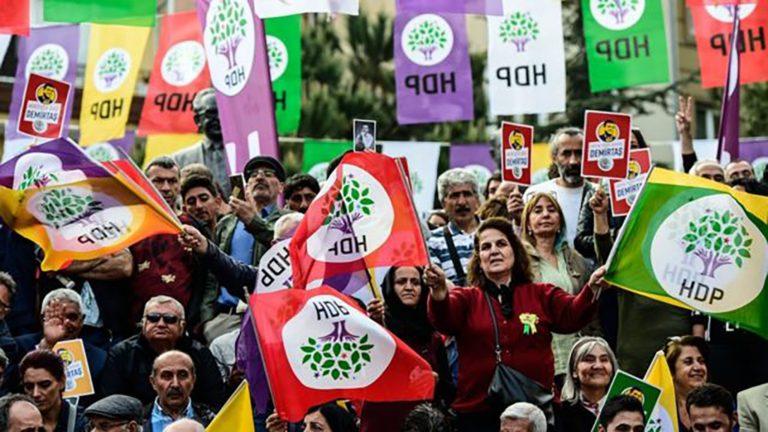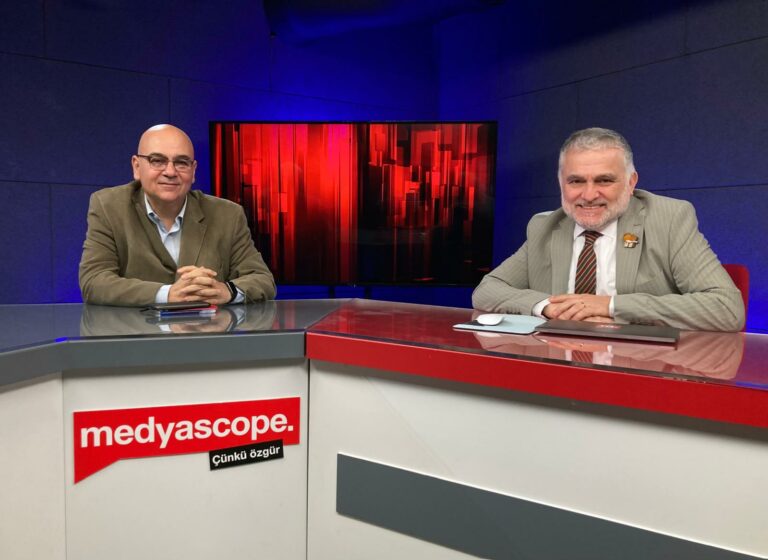Translated by Gizem Ünsalan
Hello, good day. Shortly after I started journalism, I started focusing on Islamic movements in Turkey. I did quite a lot of reading, went through a great number of books and magazines, and I spoke with people. During those days, it was clear that the people in Turkey who claimed to be Islamists—within different organizations, groups, parties; it doesn’t matter—I noticed that their main shared issue was with regards to the “single-party system” in Turkey, especially during the time of Atatürk and İsmet İnönü afterwards. Back then, there were numerous volumes of books written—and perhaps they still are being sold—claiming to be about the “real history” of Turkey. And they used to sell really well. These books depicted history differently from the official discourse. Most, if not all, of these publications were actually a critique of Turkey moving away from the sultanate and the caliphate with the establishment of the Republic. So, while the “one-party – one-man – party-state” approach was being criticized, it wasn’t replaced by pluralism. Instead, the claim was that the previous state was better. In a way, what they were trying to say was: “You abolished the sultanate and the caliphate, but what you’ve done isn’t all that different.” In fact, the claim was that, in some aspects, the sultanate was much more at peace with society and the people. They framed this harmony to a large extent—or, in fact, entirely—based on religion. The criticism was directed towards Atatürk and the other founding members of the Republic for choosing secularism.
Yet, in the following years, this pro-sultanate/Ottomanist criticism began to be replaced by an Islamist discourse that veered in the direction of democracy. In other words, the idea for a more pluralist, decentralized government began to intensify among the Islamists in Turkey as well as the conservatives as a whole, based on the party-state practices experienced during the single-party era and the realization that, despite Turkey’s multi-party system, these practices still have an impact today via the presence of what is called the “deep state.” This ideology became much more evident starting in the 90s. In reality, this phenomenon wasn’t limited to Turkey; it was a change that came about due to sociological shifts in Islamic movements around the world as new generations of well-educated, middle-class citizens joined the cause. Instead of a wıthdrawn and homogenous approach to Islamism, we gradually began to see the signals of a search for a more pluralist Islamism. It was a difficult process, but somehow the signals were there.
The situation in Turkey changed drastically during the years of the Welfare Party (RP), as the party first made a name for itself through its work in municipalities. After winning municipal elections in cities such as Istanbul and Ankara in 1994, the RP began espousing the importance of local administrations more. And, in a sense, the party began to promote local administrations as centers of true democracy.
We know that the mayors there—particularly those from the RP—mobilized people’s assemblies in their first years. I’ve watched some of them. Albeit short-lived, the practice was truly based on an alternative administrative model. After the closing of the RP and the implementation of prohibitions, the discourse surrounding this movement changed a great deal with the establishment of the Virtue Party (FP) to overcome the internal challenges of combating the “deep state” and the system. They adopted a more extroverted perspective wherein they supported the European Union and formed good relationships with the United States when necessary. Of course, this was a tactic. Since they couldn’t combat attacks from the system domestically, in a sense, they asked for support from the international, global system so as not to collapse before the national system.
The Virtue Party had quite the challenge in doing so, as both Erbakan and the team of elderly-traditional members he assembled still had too much influence within the party. In light of this, reformists were unable to have a lot of influence within the VP—or, rather, Erbakan intervened to block the reformists’ path right when they would have had influence. Once the party was closed, these reformists embarked on a new path with the AK Party, and along this path, they veered towards a perspective they would later conceptualize as “Conservative Democracy.” The assertion behind the perspective was one of pluralism and democracy.
When the party first came to power, the Undersecretary of the Prime Ministry, Ömer Dinçer, put together a proposal for public administration reform that largely had a decentralized perspective, seeking to somehow shift power from Ankara to different parts of the country. Of course, at the time—this was during the first years of AKP being in power—the established “owners” of the government did not permit this one bit, and after a personal attack campaign directed towards Ömer Dinçer, the proposal was shelved. Yet the debate has waged on ever since in Turkey. Interestingly, both the Islamists who came to power and those supporting them generally maintained the opinion that governance should be shared and the influence of Ankara, limited. In doing so, they pointed to the past, the single-party era, the Atatürk era, and the “National Chief” era as Turkey’s bad examples.
So, where are we now? When we look today, we see President Erdoğan holding video conferences with the governors of 81 provinces. Yes, he’s the President and there are critical, extraordinary circumstances, and he’s coordinating our fight against the pandemic via video conference because coming together in person isn’t a good idea, all right. Then, President Erdoğan meets with the provincial heads of the Justice and Development Party throughout all 81 provinces, holding his video conference in the same location surrounded by more or less the same people such as his advisors, etc.
And this time, President Erdoğan—who, as the head of state, assembled the governors the previous day—is assembling the provincial heads as the leader of AK Party on the following day. Then, he assembles AK Party’s Central Executive Board (CEB). The people at the table and those around him are, again, more or less the same people. The various members of the AK Party CEB are before him, and he supervises the party there, too. At last, President Erdoğan meets with the mayors, but only those who are members of the AK Party are in attendance.
Mayors throughout Turkey who are members of the CHP—mayors of Turkey’s largest provinces—do not attend. Not only are these CHP-member mayors absent from the meeting, but the government is also making a serious effort to block their progress. As Aydın Selcen wrote in an article for Gazete Duvar today, he sends governors or the Minister of the Interior to supersede the mayors from CHP, somehow refusing to see them as counterparts.
Medyascope'un haftalık e-bülteni
Andaç'a abone olun
Editörlerimizin derlediği öngörüler, analizler, Türkiye’yi ve dünyayı şekillendiren haberler, Medyascope’un e-bülteni Andaç‘la her çarşamba mail kutunuzda.
This outcome was evident the day Turkey voted for a presidential system where the president could be a party member, and we’ve seen many examples of this. But when we face a crucial event such as the coronavirus pandemic which is changing and will change everything—and President Erdoğan himself admitted this in the very beginning, stating that “Nothing will be as it was before”—Erdoğan’s actions so far have shown us that things are mostly as they were before. It allows us to see, very clearly, that the presidential system and the one-man administrative system he calls the Presidential System of Government is not in Turkey’s best interest.
For years, part of the populace spoke about the equivalence of provincial party heads and governors. Or, to be more accurate, they claimed that the provincial party heads had more influence than governors during the CHP era, and perhaps that was true. But now we see that it’s hard to even distinguish between the governor and the AK Party provincial head in some cases. Here, quite indisputably—and they probably won’t object to this, either—we see the oft-mentioned “party-state” phenomenon itself. There’s the party, members of the party, mayors who are members of the party, the provincial heads of the party, and then government administrators. That’s about it, and those who fall outside of this order are left to their own fate. In fact, instead of being left to their own fate, they are forced into a predetermined fate by the government, or the cooperation between the government and the party.
I titled this broadcast “A multi-party ‘single-party state.’” The biggest problem faced by the Presidential System of Government in Turkey—or, to be quite frank, the one-man administration—is that there are still numerous parties in Turkey, and some of them still hold a certain power. Take the HDP, for instance, or the fact that the CHP won local elections in major cities a year ago. This is what spoils the game.
And since it spoils the game, the way to make up for it would be to revise, update, or even eliminate the Presidential System of Government, to somehow revert to a parliamentary system. Yet because they do not accept this, or do not want to accept this, there is an effort to paint the parties which are not in power as the source of all malice, problems, challenges, etc. in Turkey. That is what we’re experiencing. There isn’t actually a single party in power. There is also the MHP. In fact, somehow—although it’s still a subject of debate how influential it is—but the Great Unity Party is also in power. So, there is a coalition. The parties outside of the coalition do have some influence, but it holds no value among those who run the country.
This is not a sustainable state of affairs, and we see how unsustainable it is quite clearly during this pandemic. The epicenters of the pandemic are metropolises such as Istanbul and Izmir—and, to a lesser extent, Ankara, Adana, and Mersin. In the last election held a year ago, the citizens of these cities showed significant solidarity in choosing mayors who are members of the main opposition party. Yet we see absolutely no steps taken towards combating the pandemic in cooperation with these mayors; on the contrary, any efforts by these mayors to relieve the effects of the pandemic are somehow being prevented either by the hand of the government or, where that fails, by people and groups who purport to support the government and this administration.
I mean, it is a true feat to misconstrue an aid campaign initiated by metropolitan municipalities—which found success within a short timeframe—as an example of a “state within a state.” It is quite an admirable feat. It is moreover astounding to generate conspiracy theories based on this, suggesting that these cities want to be autonomous, etc. But this is what the current discourse is based on. What does the president say? He says, “The government is the seat of the presidency.” There is a government that’s nothing more than this and a Turkey that appears to consist of those he likes and those he doesn’t, and this Turkey is currently undergoing quite a critical period, as is the rest of the world.
This was done partially in the post-July 15th era—by excluding the HDP—but Erdoğan did something based on the idea that he should be in solidarity with the other parties at such a critical moment. He didn’t keep it up for long, and he couldn’t have anyway, but at least he did it. During this period… On May 19th, for instance, he invited all parties except the HDP to Samsun. Somehow, Meral Akşener didn’t go, but the others did, and they posed for photographs together. The extent to which photographs reflect reality is another subject, but at least something was done. To date, the whole world, including Turkey, has been living and breathing the pandemic. Yet the citizens of the Turkish Republic—the ones who voted for different parties, who somehow know and intuit that the best way to get through this period is through solidarity—do not see these different parties, whether they like them or not, somehow come together via video conferencing or some other means. No such thing is happening. It’s futile. As far as I can tell, it doesn’t look like it could happen, either.
Why? Because right now, the country is under a party-state administration, and there is the understanding that having multiple parties, having an opposition, is to Turkey’s disadvantage. And this, of course, is the single-party approach. But this isn’t sustainable. Turkey isn’t a place where this could be sustained. Last year’s local elections were a declaration that the Presidential System of Government, which can only survive through constant polarization, no longer works in Turkey.
However, those who currently govern Turkey—in fact, using a plural reference may not even be necessary—President Erdoğan is still trying to push a car or a train that doesn’t work. And he’s trying to do so at a time that’s quite critical and where, truly, in his own words, “Nothing will be as it was before.” This attempt to behave as if nothing happened—this may not be attributable only to the party in power. We occasionally see similar reflexes, opinions, and behaviors from those who aren’t in power, those in the opposition. But I am of the belief that each of these people who behave as though nothing much has changed during such a critical time will see that they have nothing left to say to society after this period is eventually over.
Yes, it’s quite interesting—and I don’t mean that in a positive way—but we’re living within a strange system. The system is based entirely on a single party, a single man, but to them it’s a shame. As a citizen, I find it fortunate that Turkey doesn’t consist only of those in power and their supporters. There are others, as well. The performance of these others may be right or wrong. These issues are all up for debate, but their existence is inevitable. Yes, we are spending a lifetime waiting for this one-man administration, the Presidential System of Government, to accept that the opposition or the people who do not support them are also citizens of this country with equal rights and equal say. But it doesn’t seem to be happening. Indeed, voters demonstrated that it shouldn’t be this way last year, during the local elections. Once we overcome this pestilent virus, I think and hope that these days will be assessed in a much better, much more realistic, and forward-facing way. And I would like to conclude my words by stating that those who do not take the necessary steps today will not have much left to say tomorrow.
Yes, that is all I have to say. Have a good day.


